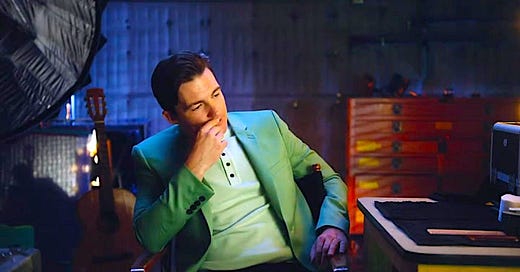Layers Of Perspective in Documentary Production & Consumption
A response to the strong reactions to Quiet on the Set: The Dark Side of Kids TV and The Dynasty: New England Patriots in a time of poor documentary literacy.
The “genre” of documentary covers a lot of different kinds of films and series. Among its many forms, a documentary can be a historical record, journalism, propaganda, personal essay, or entertainment. The expectation for documentaries to first and foremost provide factual content is a problem going back perhaps to their association with educational films in schools. Everyone forgets, or isn’t aware, that many of the earliest documentaries of note included only a sense of reality, manipulated through editing or staged scenes. While documentaries should be trusted to deliver an impression of the truth, they should be accepted as products of perspective. But then, so should history, journalism, and most fact-driven media.
Documentaries are made by a collaborative team that typically offers one perspective on the truth. They may include interviews with people providing their perspectives on the truth, which are compiled in a way that ultimately serves the filmmakers’ agenda — even if that agenda is intended to be unbiased. Documentaries are then watched by audiences who perceive the truth based on their perspectives. There are a lot of points of view at play in the production and consumption of documentaries. Viewers need to be able to read each documentary for what they are, what they’re doing, what they’re showing, and why. Within that, along with the documentarians and their teams, audiences should read every clip and every person. Media literacy is key, but so is the observation of the people on screen with empathy and intuition.
Take the documentary Quiet on the Set: The Dark Side of Kids TV, which was made to expose alleged abuses and address questionable behavior and practices in the production of certain children’s programming, specifically those created and overseen by Dan Schneider for Nickelodeon. While documentaries concern truthiness over truthfulness, and their interviewee testimonials are not sworn testimonies, viewers treat documentaries as if they’re official records. Entertainment journalists and their editors also treat them as such, leading to the majority of online documentary “criticism” following the current trend of “Everything We Learned From…” listicles. That sort of coverage isn’t necessarily inaccurate, but it’s not a fair representation of the documentary in question. That’s just one viewer’s digestion of the material.
Keep reading with a 7-day free trial
Subscribe to Nonfics to keep reading this post and get 7 days of free access to the full post archives.




